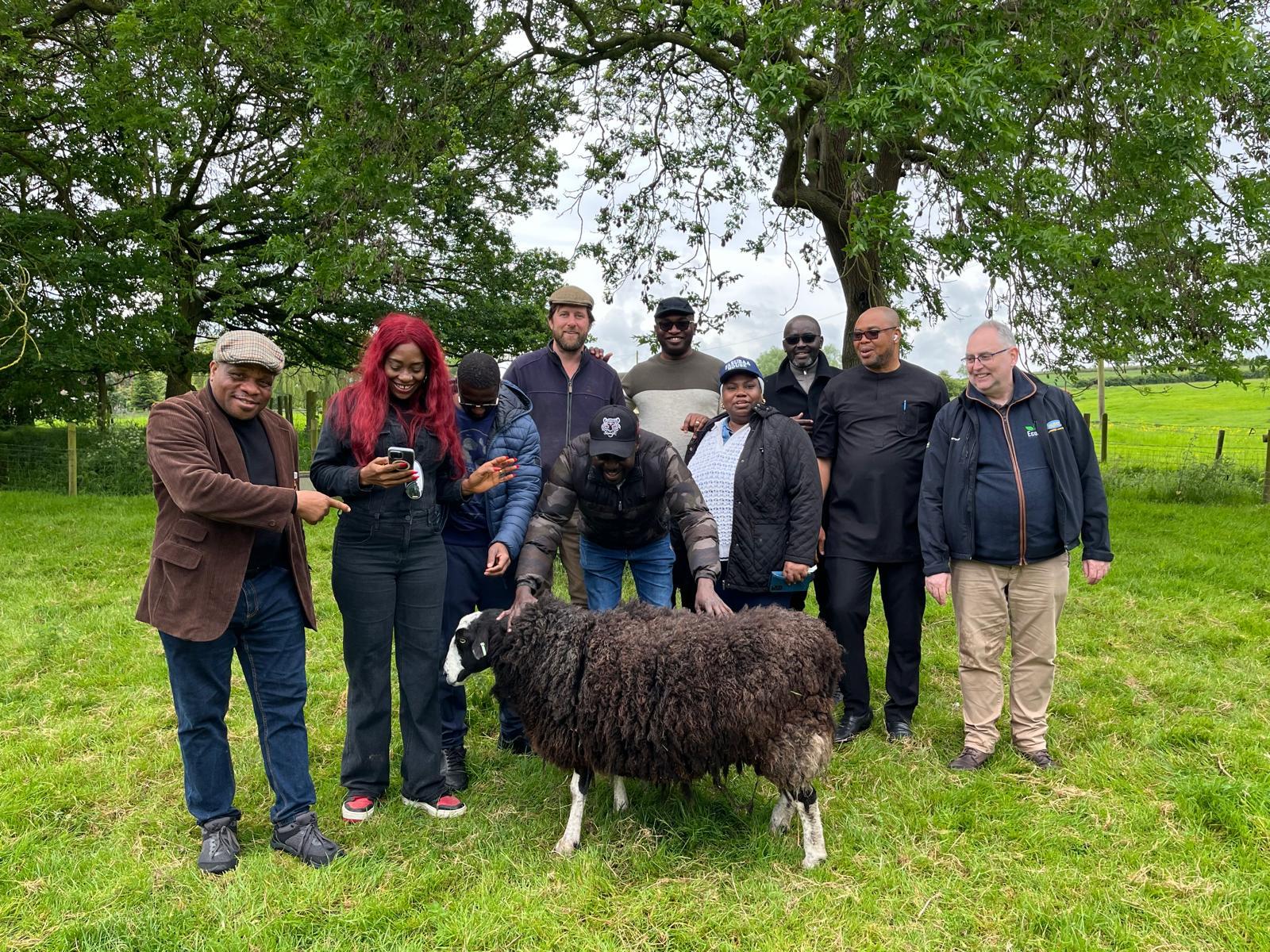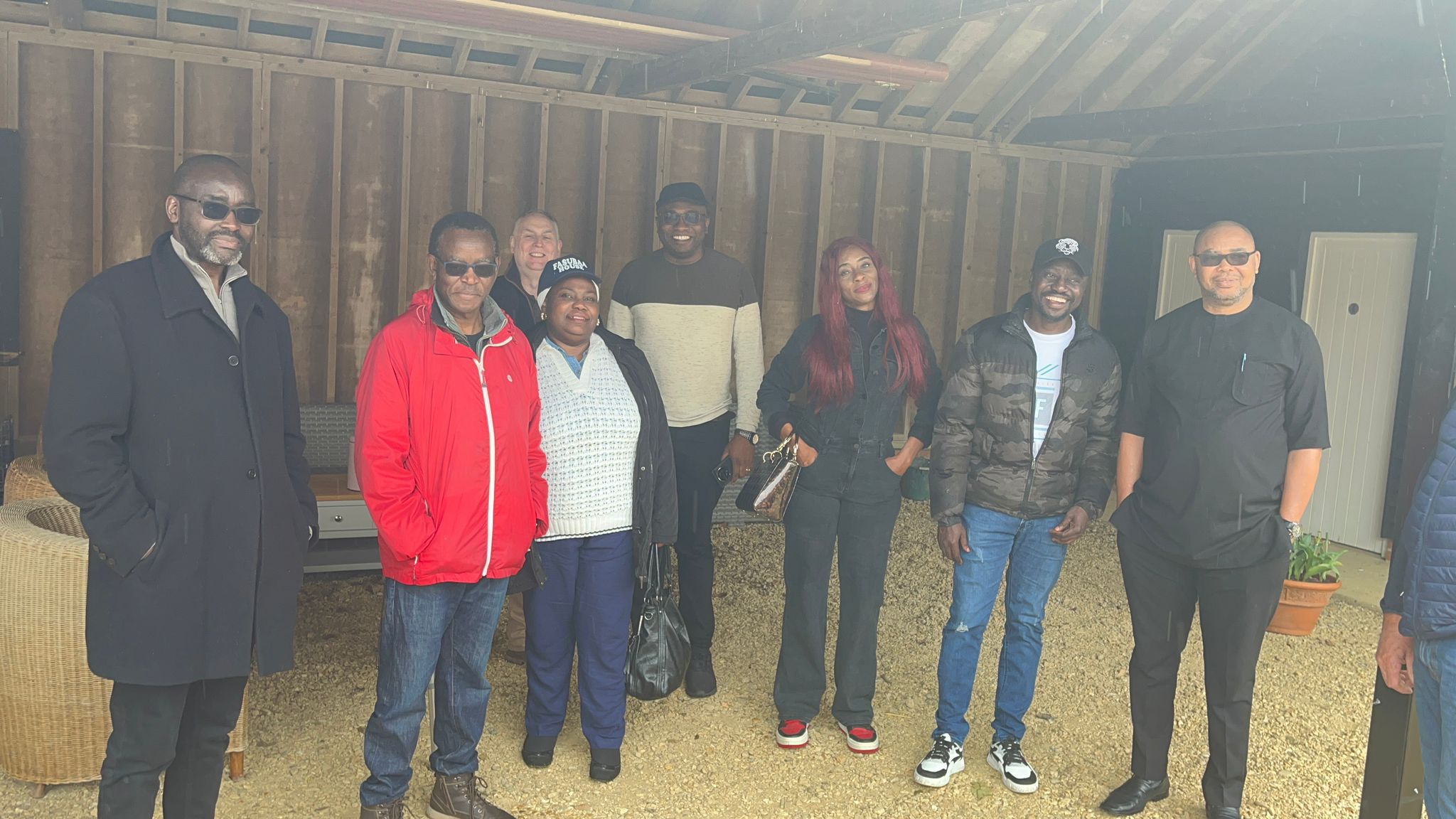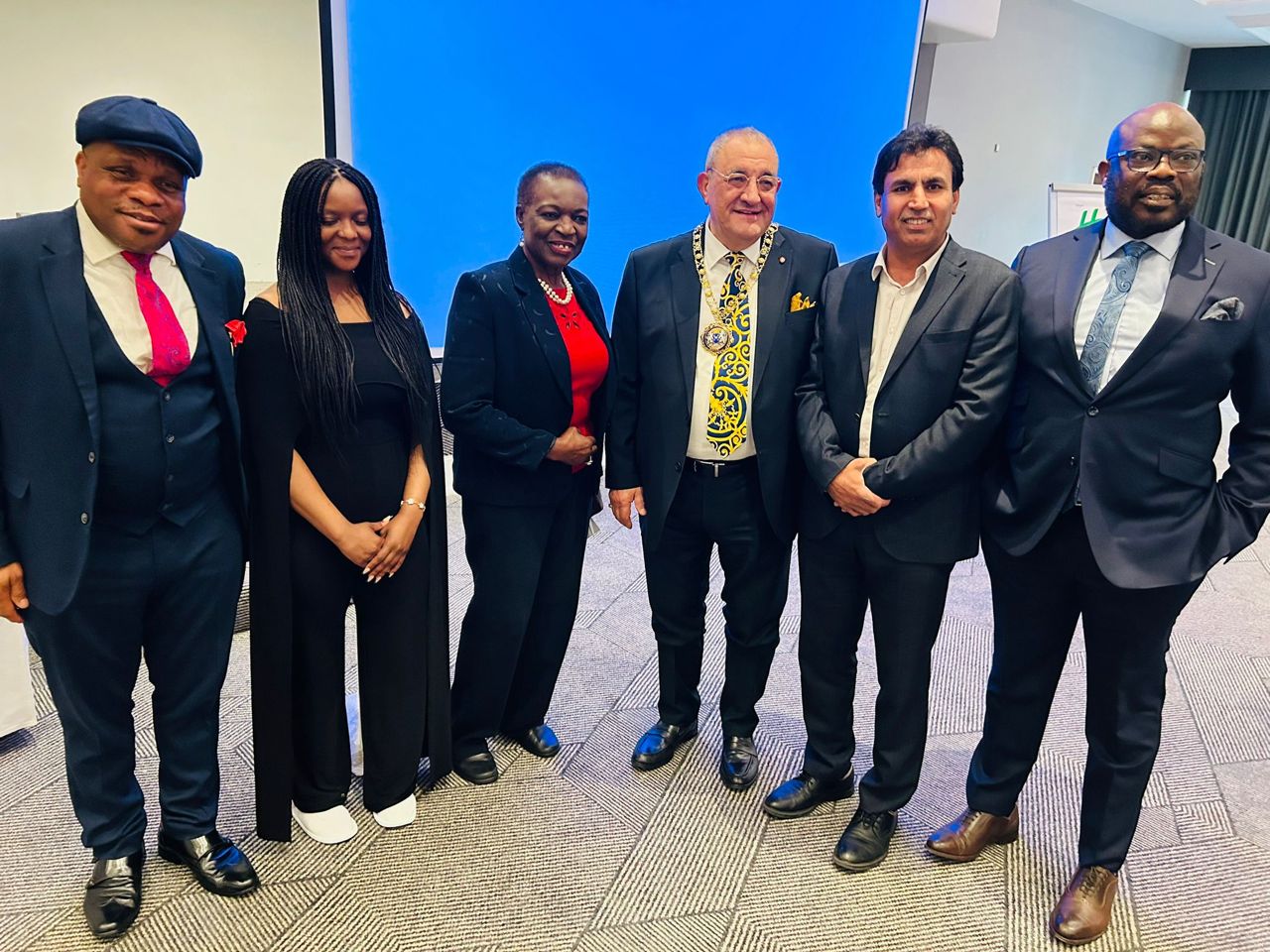UK Trade and Investment: Agribusiness and AgriTech Summit/Farm Tour in Peterborough - After Summit Report
Conference and Exhibitions: UK Trade, Investment and Agribusiness Summit/Fair 2024The Agribusiness and AgriTech Summit/Farm Tour in Peterborough, organized by Cater and Merger Consult Limited, concluded successfully on Friday, 24th May 2024. Held over four days in Peterborough City, UK, this significant event brought together over 65 participants, including industry leaders, innovators, policymakers, and investors from seven countries (UK, Germany, Zimbabwe, Sierra Leone, Gambia, Nigeria, and Ghana) to explore the latest advancements in agribusiness and AgriTech, foster collaborations, and discuss sustainable practices. This gathering was a melting pot of ideas and innovations, featuring keynote speeches, panel discussions, and on-site farm tours, providing comprehensive insights into the industry's current state and future directions in the United Kingdom, Europe, and Africa. The summit commenced with a heartfelt welcome address by The Worshipful Mayor of the City of Peterborough, Clir. Marcos Cereste. The Mayor narrated the historical significance of Peterborough, emphasizing its deep-rooted links to the Romans and Italy, its rich farming heritage, and the critical importance of innovation in agriculture for economic growth and sustainability. He extended a warm invitation to attendees to visit the city's historic cathedral and other notable sites, underscoring the cultural richness and the community's longstanding dedication to advancing agricultural practices. A keynote address on agribusiness opportunities was delivered by His Excellency, Amb. Dr. Morie Manyah, the High Commissioner of Sierra Leone to the United Kingdom. His Excellency highlighted the vast agricultural potential of Sierra Leone, elaborating on the critical role technology plays in transforming traditional farming practices into more efficient and sustainable methods. Dr. Manyah's address underscored the significance of international collaboration and technological advancements to boost agricultural productivity and sustainability in Africa, thus setting a forward-looking tone for the summit. Complementing this, Dr. Ikechi Agbugba, an Associate Professor of Agri-economics at the University of Birmingham, provided an in-depth presentation on the importance of precision agriculture, Internet of Things (IoT), and artificial intelligence (AI) in enhancing sustainable farming practices. Dr. Agbugba illustrated with numerous examples how these technologies are currently being utilized to increase efficiency, reduce waste, and significantly improve crop yields, thereby highlighting the transformative potential of AgriTech. Dr. Adeola Fasubaa, the DG Ekiti State Diaspora Relations, gave a brief presentation on agricultural development and opportunities in the state, including the need to empower young farmers and women through international funding, grants, and investment. Dr. Condt. Alistair Soyode, representing the MD of NAMEL Nig Ltd., spoke about the transformation of agriculture through innovative mechanization, as the company is currently investing and partnering with some states in Nigeria. There were other brief presentations by Engr. Patrick Obidoyni of Lancaster Farms UK, Mr. Phil Gaffney of Ecostim UK, Mr. Tom Martins of Toons Farms, and many others. Several panel discussions formed a crucial part of the summit, featuring rich insights from leading tech firms, agricultural businesses, investors, entrepreneurs, and policymakers. These discussions delved deeply into various aspects of the agribusiness and AgriTech sectors, such as the future of AgriTech, investment opportunities in agribusiness, and the regulatory landscape affecting the sector. The panels were moderated by notable figures like Mr. David Smith, Chairman of the British African Business Alliance, and Engr. Nweike Onwuyali, CEO of Ziphii Technology UK. These panels explored emerging technologies, financial aspects, and regulatory frameworks necessary to support innovation while ensuring environmental sustainability and food safety. The summit brought together over 65 delegates from seven countries, representing a wide array of expertise in agribusiness and AgriTech. The primary objectives of the summit were to foster collaboration, share innovations, and discuss strategies to enhance trade and investment in the agribusiness sector. Discussions emphasized the need for sustainable farming practices that balance productivity with environmental stewardship. Participants highlighted successful models and technologies that promote resource-efficient and climate-resilient agriculture. Mr. Izak Van Heerden of Nuffield Farming Scholars emphasized the importance of people and orientation, while Dr. Akinwumi Okoro, an organic agriculture expert, spoke about policy development and implementations. Dr. Ikechi Agbugba presented on human development and capacity building through the “Brain Re Engineering Concept," and Mr. David Smith emphasized the potentials of trade and investment, the diaspora economy, and connectivity.
The role of AgriTech in transforming agriculture was a central theme. Innovations in precision farming, biotechnology, and digital agriculture were showcased, demonstrating their potential to improve yields, reduce waste, and enhance supply chain efficiency. Further developments from the presentations by Mr. Nweike of Ziphii Technology UK, Engr. Obidoyni Digital Infraco UK, and Mr. Dayo Taiwo of DT&T were eagerly anticipated. There was a consensus on the importance of reducing trade barriers and enhancing market access for agricultural products. Strategies to streamline regulatory frameworks and improve infrastructure were discussed to facilitate smoother trade flows. The idea of farm-to-folk was reemphasized, with the drive for produce to exchange hands from the farmers directly to the consumer (end-user). There would be a partnership follow-up with Mr. Tom Martins, a fourth-generation Peterborough farm owner (Toons Lodge Farm) who spoke on the importance of sustainability, biodiversity, collaboration, and growth. Clir. Harold Ogunfemi of Signet UK also emphasized the significance of access to markets. Participants explored various investment opportunities in the agribusiness sector, with a focus on attracting private sector investment and fostering public-private partnerships. Investment in research and development, as well as in infrastructure, was identified as crucial for sector growth. There were serious potentials presented by a team of young Zimbabwean Agri-Entrepreneurs, called Global Farm Connect, who have developed a network of funding opportunities for farmers across Africa. Additionally, a significant potential investment outlay from a serious investor is looking into the UK, Nigeria, and other African countries. Cater and Merger Consult UK will be facilitating with Simeon Services UK Limited/MASIICC UK Limited, a partnering investment company with an investment portfolio of $150B. In addition to the insightful discussions, participants had the opportunity to visit local farms showcasing cutting-edge AgriTech solutions, such as automated machinery, drone technology, and sustainable farming practices. These hands-on demonstrations provided practical, on-the-ground insights into the applications and benefits of these innovations. The Hill Farm tour, hosted by Paddy Ivens, demonstrated automated machinery and sustainable farming techniques in action, offering participants a first-hand look at how technology is being employed to improve farm operations and productivity. The visit with 'Farmer Tom' Thomas Martin highlighted the use of drone technology for crop monitoring and precision agriculture, showing the benefits of real-time data collection and analysis in improving crop management and reducing environmental impact. Mr. Phil Gaffney, CEO of Ecostim Ltd., UK, remarked on the enriching experience, noting that the event was fantastic for meeting new contacts and reconnecting with familiar faces. He particularly appreciated the farm tours, where Hill Farm and 'Farmer Tom' provided excellent demonstrations that highlighted the future of farming.
Structured networking sessions facilitated interactions among participants, fostering new partnerships and collaborative ventures. Several promising connections were established, expected to lead to future business and investment opportunities. These networking sessions were designed to encourage meaningful exchanges between participants, enabling them to explore potential collaborations and share best practices. Mr. David Smith, Chairman of BABA UK, highlighted the significance of the summit, noting that it was instrumental in getting projects from Nigeria, Sierra Leone, and Zimbabwe off the ground. He emphasized Peterborough's importance as a hub for UK exports, diaspora engagement, and Pan African Business Development, identifying 3,450 business professionals with links to Africa based in the city. Feedback from participants was overwhelmingly positive. Many appreciated the comprehensive agenda, quality of speakers, and practical insights from the farm tours. Suggestions for improvement included more networking time and an additional focus on emerging technologies. Participants expressed their satisfaction with the event's organization and the opportunities it provided for knowledge sharing and collaboration. The summit resulted in several key outcomes, including the signing of memorandums of understanding (MoUs) and collaborative agreements, promising advancements in technology sharing and joint ventures. Notable investment pledges were made towards AgriTech startups, indicating strong investor interest and confidence in the sector's potential for growth and profitability. These MoUs and investment pledges are expected to facilitate the implementation of innovative technologies and sustainable practices in the agribusiness sector, driving the industry forward. Based on the panel discussions, a set of policy recommendations was formulated to foster a conducive environment for AgriTech innovations. These recommendations included tax incentives for sustainable practices, streamlined approval processes for new technologies, and increased investment in research and development. The policy recommendations emerging from the summit emphasized the need for supportive regulatory frameworks and investment in capacity-building initiatives. Governments were urged to provide tax incentives for farmers and businesses adopting sustainable practices, encouraging the widespread adoption of environmentally friendly technologies and methods. To facilitate the introduction of new technologies, streamlined approval processes were recommended, helping reduce barriers to innovation and ensuring that new solutions can be rapidly deployed to address pressing agricultural challenges. Investments in capacity-building initiatives were also called for, aimed at empowering farmers, especially smallholders, with the skills and knowledge needed to adopt new technologies and practices. This includes training programs, workshops, and access to resources that can help farmers implement innovative solutions on their farms. Participants committed to strengthening collaboration across sectors and countries to address common challenges and leverage shared opportunities in agribusiness and AgriTech. There was a pledge to support and accelerate the adoption of innovative technologies through knowledge sharing, capacity building, and financial incentives. The summit called on governments to develop and implement policies that support sustainable agriculture, promote investment, and facilitate trade. Commitments were made to invest in capacity-building initiatives aimed at empowering farmers, especially smallholders, with the skills and knowledge needed to adopt new technologies and practices. The Agribusiness and AgriTech Summit/Farm Tour in Peterborough was a resounding success, marking a significant step forward in integrating technology with agriculture. Moving forward, UK Trade and Investment will focus on supporting the implementation of collaborative ventures and monitoring their progress, facilitating continuous dialogue between stakeholders to address emerging challenges and opportunities, and organizing follow-up events and workshops to maintain momentum and support ongoing innovation. The insights and connections gained from this summit will undoubtedly contribute to the growth and advancement of the agribusiness and AgriTech industries in the UK. Innovation and technology adoption were central themes throughout the summit, with participants pledging to support and accelerate the adoption of innovative technologies through knowledge sharing, capacity building, and financial incentives. Specific recommendations include tax incentives for sustainable practices and streamlined approval processes for new technologies, produce import/export tariffs, and standardization for many African farm products. Commitments were made to invest in capacity-building initiatives aimed at empowering farmers, especially smallholders, with the skills and knowledge needed to adopt new technologies and practices. There will be further engagement in this area with Dr. Ikechi Agbugba and his Brain Re Engineering concept, and Mr. Tom Martins of Farmers Time Global Programs. Participants agreed that the Trade, Investment and Agribusiness Summit/Fair will become an annual event to continue the dialogue and track progress on the commitments made. At the next summit in Germany this September, the Agribusiness initiative of Friends of OBJ will be launched fully with the presence of OBJ in person. The establishment of working groups focused on key areas such as technology innovation, trade facilitation, and sustainable practices was endorsed. These groups will work throughout the year to advance the summit’s objectives. A framework for monitoring and evaluating the implementation of the summit’s resolutions will be developed, with regular reports shared with stakeholders to ensure transparency and accountability. The Trade, Investment and Agribusiness Summit/Fair concluded with a renewed sense of commitment and optimism for the future of agribusiness. By working together, we can create a more sustainable, innovative, and prosperous agricultural sector that benefits all humanity. Cater and Merger Consult wishes to thank all participants for their valuable contributions and look forward to continued collaboration.


In addition to the structured networking sessions and farm tours, several key outcomes and resolutions emerged from the summit. Innovation and technology adoption were at the forefront, with a pledge to support and accelerate the integration of innovative technologies through knowledge sharing, capacity building, and financial incentives. Governments were called upon to develop and implement policies that support sustainable agriculture, promote investment, and facilitate trade. Specific recommendations included tax incentives for sustainable practices, streamlined approval processes for new technologies, produce import/export tariffs, and standardization for many African farm products. There were commitments to invest in capacity-building initiatives aimed at empowering farmers, especially smallholders, with the skills and knowledge needed to adopt new technologies and practices. Investment opportunities in the agribusiness sector were thoroughly explored, focusing on attracting private sector investment and fostering public-private partnerships. Significant attention was given to investment in research and development and infrastructure, deemed crucial for sector growth. One of the most notable highlights was the potential investment outlay from a serious investor looking into the UK, Nigeria, and other African countries. Cater and Merger Consult UK will be facilitating this with Simeon Services UK Limited/MASIICC UK Limited, a partnering investment company with an investment portfolio of $150B. This substantial investment is expected to drive significant advancements and growth within the agribusiness sector, facilitating the implementation of innovative technologies and sustainable practices. Panel discussions were a crucial component of the summit, offering rich insights from leading tech firms, agricultural businesses, investors, entrepreneurs, and policymakers. These discussions delved deeply into various aspects of the agribusiness and AgriTech sectors, such as the future of AgriTech, investment opportunities in agribusiness, and the regulatory landscape affecting the sector. Moderated by notable figures like Mr. David Smith, Chairman of the British African Business Alliance, and Engr. Nweike Onwuyali, CEO of Ziphii Technology UK, these panels explored emerging technologies, financial aspects, and regulatory frameworks necessary to support innovation while ensuring environmental sustainability and food safety. The hands-on demonstrations during the farm tours provided practical, on-the-ground insights into the applications and benefits of these innovations. The Hill Farm tour, hosted by Paddy Ivens, showcased automated machinery and sustainable farming techniques in action, offering participants a firsthand look at how technology is being employed to improve farm operations and productivity. Similarly, the visit with 'Farmer Tom' Thomas Martin highlighted the use of drone technology for crop monitoring and precision agriculture, demonstrating the benefits of real-time data collection and analysis in improving crop management and reducing environmental impact. Structured networking sessions facilitated interactions among participants, fostering new partnerships and collaborative ventures. Several promising connections were established, expected to lead to future business and investment opportunities. These networking sessions were designed to encourage meaningful exchanges between participants, enabling them to explore potential collaborations and share best practices. Mr. David Smith, Chairman of BABA UK, highlighted the significance of the summit, noting that it was instrumental in getting projects from Nigeria, Sierra Leone, and Zimbabwe off the ground. He emphasized Peterborough's importance as a hub for UK exports, diaspora engagement, and Pan African Business Development, identifying 3,450 business professionals with links to Africa based in the city. The summit resulted in several key outcomes, including the signing of memorandums of understanding (MoUs) and collaborative agreements, promising advancements in technology sharing and joint ventures. Notable investment pledges were made towards AgriTech startups, indicating strong investor interest and confidence in the sector's potential for growth and profitability. These MoUs and investment pledges are expected to facilitate the implementation of innovative technologies and sustainable practices in the agribusiness sector, driving the industry forward. Feedback from participants was overwhelmingly positive. Many appreciated the comprehensive agenda, quality of speakers, and practical insights from the farm tours. Suggestions for improvement included more networking time and an additional focus on emerging technologies. Participants expressed their satisfaction with the event's organization and the opportunities it provided for knowledge sharing and collaboration. The summit underscored the importance of aligning agricultural practices with sustainable development goals. By integrating advanced technologies and fostering international collaborations, the event highlighted the potential for agribusiness to contribute to broader environmental and social objectives. The discussions and agreements reached during the summit will play a crucial role in shaping the future of agribusiness, ensuring that it remains resilient and adaptive to global challenges such as climate change, food security, and economic sustainability. Looking ahead, the continued engagement and collaboration among participants will be essential in driving the initiatives forward. Regular follow-up meetings, workshops, and forums will be crucial in maintaining the momentum and addressing any emerging challenges. By fostering an environment of continuous learning and innovation, the agribusiness and AgriTech sectors can continue to thrive, contributing to the economic growth and sustainability of the UK and beyond. The insights and connections gained from this summit will undoubtedly have a lasting impact, shaping the future trajectory of agribusiness and AgriTech for years to come. The successful conclusion of the Agribusiness and AgriTech Summit/Farm Tour in Peterborough has laid a solid foundation for future initiatives, ensuring that the momentum gained will be carried forward, fostering continuous improvement and innovation in the agribusiness and AgriTech sectors. Cater and Merger Consult wishes to thank all participants for their valuable contributions and looks forward to continued collaboration in future events. The event set a high standard for future gatherings, demonstrating the power of collaboration and innovation in driving the agribusiness and AgriTech sectors forward. The collective efforts and shared vision of the participants will contribute significantly to the growth and sustainability of agriculture, both in the UK and globally.
